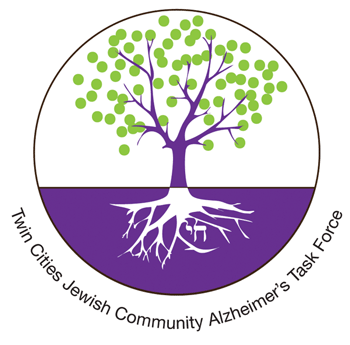A niece chronicles her uncle’s journey with dementia
By MICHELE MEISLER
When I think of my uncle, I am struck by the dichotomy between the end of his life and the middle, and how different they were.
He grew up in St. Paul, attended the University of Minnesota and earned a Ph.D. in engineering from Harvard. He held many prestigious jobs, including a position at Dolby Labs (the famous sound technology firm). His proudest accomplishment was adding an additional speaker in theaters for the second set of Star Wars movies. That innovation changed the theater experience and earned Dolby an Academy Award.
My uncle lived in San Francisco and had a busy social life, with many friends; he never married and had no children. Given the long distance, we would see him about every other year or so. And we were less aware of his deteriorating condition due to the logistics as well as the speed of the disease.
Alzheimer’s Conference:
May 3, 2015
At first he started calling less often, and then not at all. We eventually became aware of his deteriorating cognitive state from friends, which was confirmed by our visit to see him. He seemed more forgetful and he was getting lost driving in a city he knew well.
In the beginning, we were in denial. We were not clear what should be done and who would be responsible for him. His dog kept him from getting lost by leading him back home. But eventually, things worsened significantly, and social service agencies were about to take action. He was at risk of losing his home and assets.
My father flew out to check on him, and found him malnourished, as he often forgot to eat. His clothes were tattered and worn, and his shoes had holes in them. For us, that news was a tipping point. We quickly brought him to Minnesota where we felt we could provide better care for him than from afar.
Initially, we thought he could live in a senior apartment with meals so he wouldn’t have to cook. However, after the first night it became clear that my uncle needed more supervision. We felt fortunate that we were able to find an assisted living facility that would take both him and his dog.
We pitched in to help. Some of us took on the medical care roles, while others helped sort through the financial mess, paying overdue bills, consolidating credit cards, discontinuing phone service, etc.
My uncle seemed to recognize us most of the time. In particular, he liked when I came to visit and brought my youngest daughter. She saw him as no different from anyone else. His face would light up when he saw her. We would bring things to do together, often sharing silly stories, pictures she had made, games or puzzles. It was challenging to find time to help care for him while I was caring for my own family. I was plagued by guilt if I didn’t visit him often enough.
Over time, I learned not to correct him when he would say something that didn’t make sense. I would often go along with his inappropriate statements, which consisted of words strung together that had no relation to each other. This seemed to make our visits much easier and lighthearted.
I recall one particular episode when I had tried to take him to the eye doctor, and he wouldn’t get out of the car. I was upset and crying at my failed attempt, and as I brought him back to his residence, I told him goodbye and that I loved him. He said, “I love you, too.” It was a sentence that made sense and was relevant to our conversation. I felt like jumping for joy! So few and far between had been the moments. So much of my time with him instead had been mourning and reflecting on how sad I felt for him.
Were it not for the amazing support and friendships we found in an Alzheimer’s support group, we never would have made it through the journey. The members taught us valuable lessons in understanding the disease, how to communicate more effectively, how to “find the joy” in a moment, and yes, even to laugh at some crazy things. The biggest lesson I learned is that you cannot go through this type of experience without support, whether it be friends, family, a support group or other caregivers to look to for help.
Please join our community to learn more about dementia and the resources available to help affected families. The Twin Cities Jewish Community Alzheimer’s Task Force will present “Keeping the Spirit Alive,” a conference for caregivers and those supporting a loved one with dementia on May 3, 2015, at the Sabes JCC in St. Louis Park.
***
For information on the Twin Cities Jewish Community Alzheimer’s Task Force, contact co-chairs Rita Kelner at 612-834-0641 or Judy Witebsky at 763-546-1658.
(American Jewish World, 11.7.14)


















